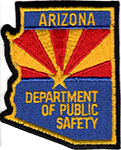
Arizona is one of many states in the country designated as a ‘constitutional carry’ state, which means in effect that it is not necessary to have a permit for carrying a concealed weapon. The other four states are Wyoming, Vermont, Alaska, and Montana – all other states in the union are regarded either as ‘shall issue’ states or ‘may issue’ states, and those designations refer to the level of restriction imposed by state governments on whether or not they issue permits to carry concealed.
It is still required however, to meet the same rules of eligibility for ownership of a handgun. What has changed since July of 2010 is that a bill passed in the state legislature eliminates the need to apply for a permit to carry a concealed weapon in the state of Arizona.
Prior to that bill passage, handgun owners could carry a weapon without a permit if it were plainly visible, but could not carry one concealed unless they owned a permit allowing them to do so. With the new bill in place, anyone who is eligible to own a handgun is now allowed to carry it in any manner most convenient to the owner, including in a purse, under clothing, or in a coat pocket, all without having to apply for a permit.
This survey will discuss current Arizona gun laws with a view toward permit eligibility (which is still necessary in certain situations), interstate reciprocity rules, and appropriate interactions and behaviors with law enforcement personnel and public places.
Impact of carrying concealed
The intent of the bill passed in July 2010 is to cover concealment of handguns, although language does not specifically rule out larger firearms. Practically speaking though, a shotgun or rifle would be difficult to conceal on an individual.
Although other states have had the ‘constitutional carry’ program in place for several years, the impact to Arizona is likely to be different, because it is a much more populous state than those others, and because there are many more large cities within its boundaries.
Although the bill’s opponents worry that the waiving of permits and training could cause many more injuries to handgun owners and the population in general, gun rights advocates point out that Arizona has already had an ‘open carry’ policy for several years which did not require a permit. Since this has not resulted in any drastic increase in crime rates thus far, their position is that those statistics will remain unaffected. The only real difference now is that a handgun owner is allowed to carry the handgun concealed without a permit.
The most notable and observable impact thus far is that establishments offering training and education about firearms are instructing far fewer students since the passage of the bill, because the permit and the training are no longer mandatory. These education sources are attempting to compensate by lowering course tuition and shortening course lengths, but are still receiving far fewer registrations.
Protocols in public places
Individuals carrying concealed weapons in bars or restaurants must still have a permit to carry a concealed weapon – this requirement is unchanged by the July 2010 bill passage. In addition, owners of such establishments at their discretion may notify patrons by way of prominently displayed signs, that handguns are not allowed within the establishment, whether owners have permits or not.
There are some places where carrying concealed weapons is strictly off limits in the state of Arizona. These include commercial power generating facilities, polling places on the day of public elections, all correctional facilities and the grounds and parking lots surrounding them, wildlife and game refuges, and public schools, although some carrying rights are permissible under certain conditions on and around school grounds.
Interstate reciprocity
Arizona citizens who do have permits to carry concealed weapons enjoy reciprocity rights in some states, and to be sure of which states those are, it is advisable to research state handgun laws when visiting other areas of the country. Arizona also allows handgun owners with concealed carry permits the same privilege within its borders, subject to legal behavior.
Concealed carry permit eligibility
Because it is still necessary to have a permit to carry concealed weapons in certain situations, for example bars and restaurants, many individuals still may find it advantageous to have a permit for carrying concealed. The following are current requirements for permanent eligibility:
- You must be a resident of Arizona, or at least a United States citizen
- You must be at least 21 years old, or 19 years old with service in the US military and in possession of an honorable discharge
- You cannot be under indictment on any felony charge
- You cannot be convicted of a felony offense, and you cannot be prohibited for any reason from becoming a handgun owner
- You must not be suffering from any kind of mental illness, and you must not have been diagnosed as mentally incompetent by any recognized authority in the medical field
- Your presence in the United States cannot be considered illegal – you must have current legal status in the country
- You must complete an Arizona handgun training program, pursuant to the appropriate state legislation governing such handgun training
Interacting with law enforcement personnel
Any handgun owner, when questioned by law enforcement personnel, must truthfully declare whether or not they carry concealed weapons on their person. Failure to do so is a punishable crime, and is likely to result in suspension of permit privileges and possibly handgun ownership eligibility. Officers are within their rights to confiscate concealed weapons temporarily if they feel warranted in doing so, or if they have reason to suspect a public danger. It is also worth noting that any crime committed by a handgun owner carrying a concealed weapon carries a much stiffer penalty than normal.
